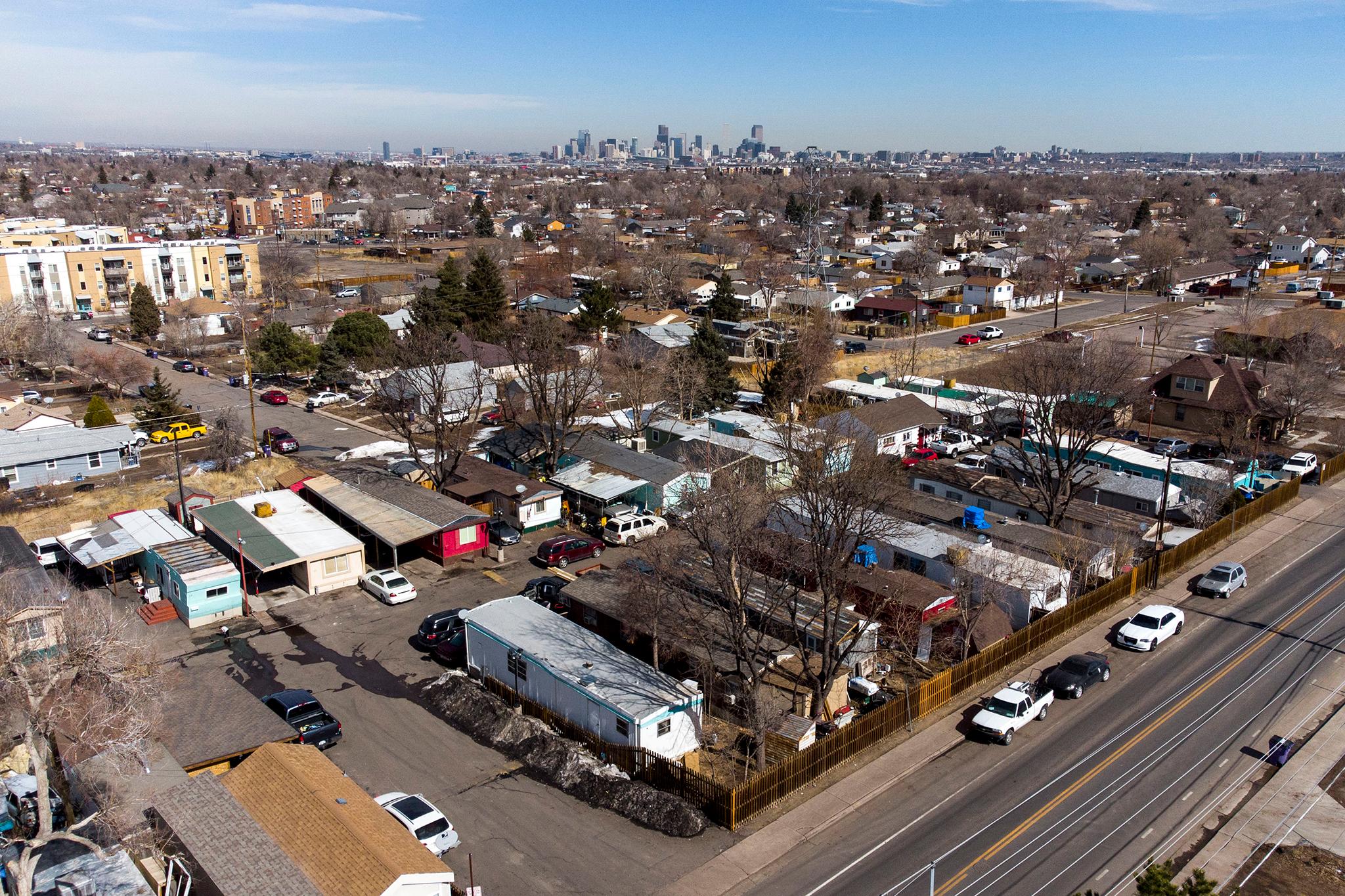Last week, Colorado lawmakers introduced a bill that intends to protect mobile home park residents from being displaced.
The bill increases and strengthens regulations on park owners, but most importantly, according to state Rep. Andrew Boesenecker, the bill would limit excessive rent increases on lots.
Residents often own their units and rent the land where the unit is located. The problem with rent increases is that residents cannot pick up their units and relocate, either because of cost or infrastructure setbacks, said Cesiah Guardarrama Trejo, an associate director with the housing advocacy group 9to5 Colorado.
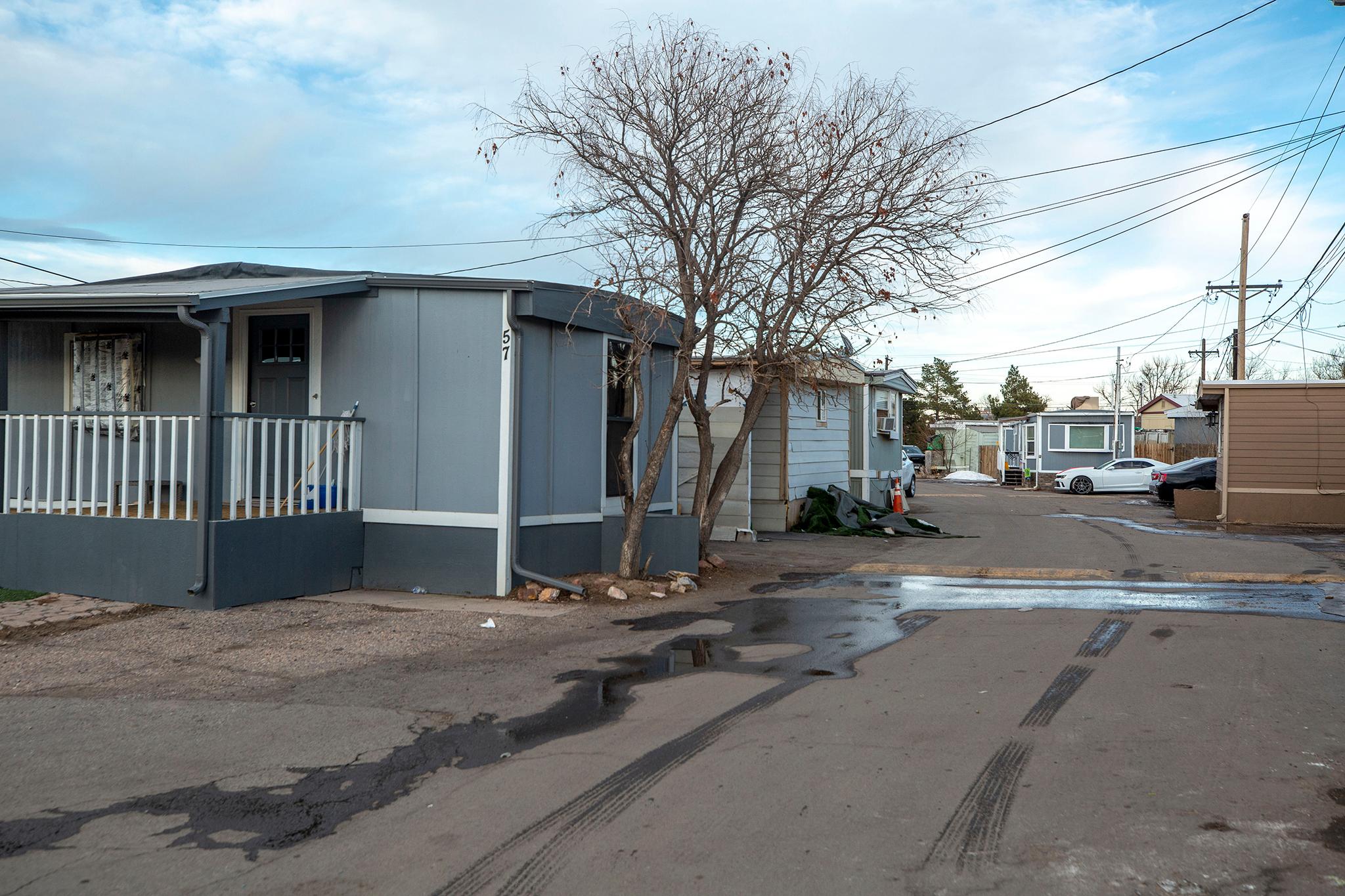
"One thing that's been happening over the last couple of years is that corporate entities are buying up these parks, increasing rents and changing the rules," Trejo said. "We're losing those communities to those corporate entities that will inevitably cause displacement. There should be an interest and investment by local municipalities for better protection and enforcement to preserve these communities."
Trejo said that given Colorado and Denver's need for more affordable housing, preserving what's already affordable needs to be as important as creating new housing options.
But preserving mobile home parks in Denver is a bit difficult considering they essentially aren't allowed.
According to Denver zoning laws, new mobile home parks have not been allowed in the city since 1956. Existing parks were allowed to continue operating, but they can't expand or add additional units to the lot. The existing units can be maintained and repaired, but can only be replaced by a unit that's "substantially similar in construction and size."
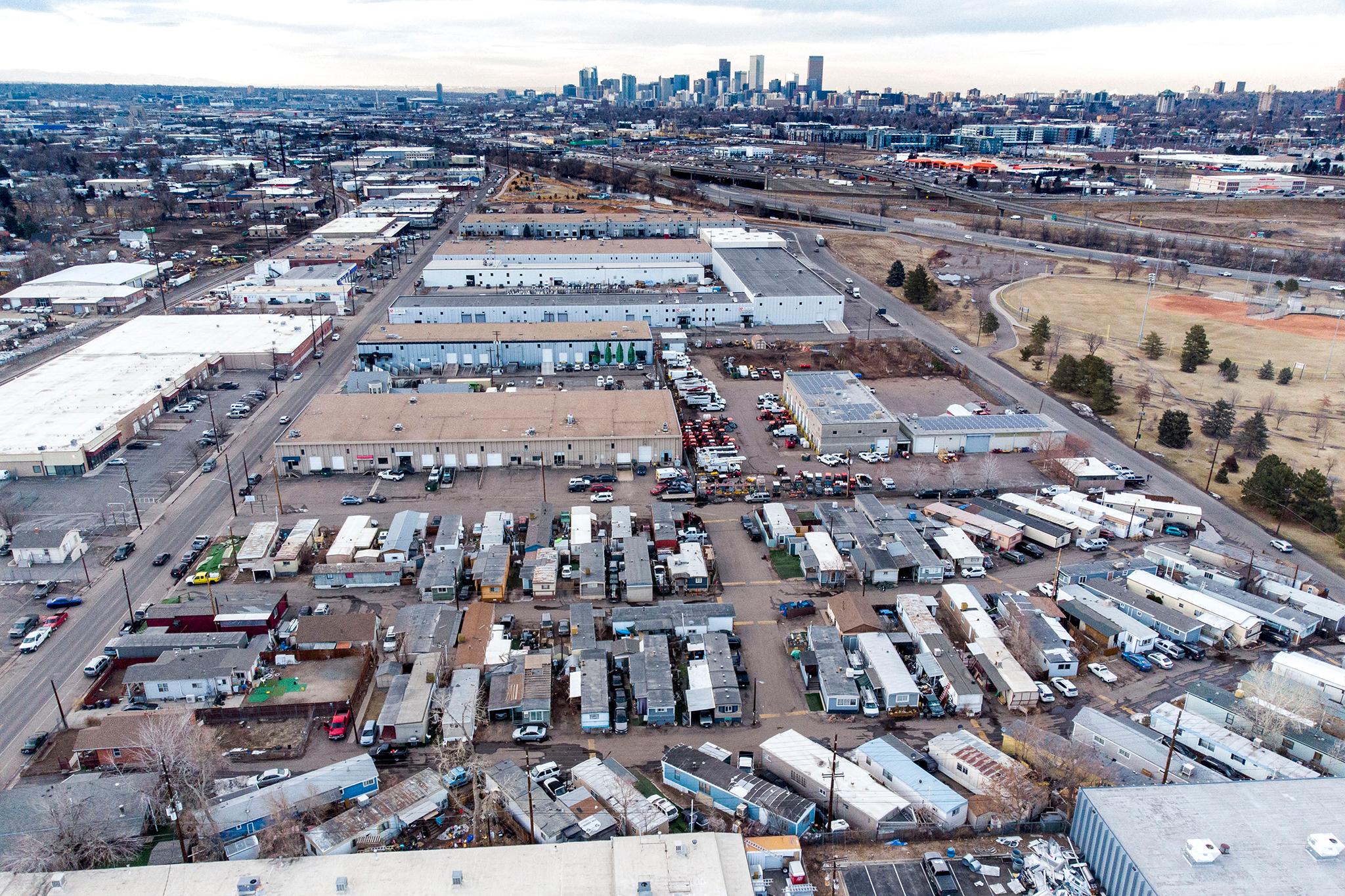
Newer units that are compliant with the U.S. Housing and Urban Development standards cannot replace older units.
"We've written into our code that we can't maintain the parks much less add more to the city," said Denver City Councilmember Jamie Torres. "The only route for transforming mobile home parks at this point is for them to be bought out and turned into something else, which is really traumatic for those communities. (Park residents) are some of our lowest-income earners. Add on the fact that some of those families are likely undocumented, so they face additional barriers in getting housing."
Five parks operate in Denver: two in Elyria-Swansea and the rest in Westwood, Athmar Park and College View/South Platte. Two additional parks previously existed in Westwood, but both were closed and razed in about 2016. They were replaced with 197 units of affordable housing for those making 60% or less of the area median income.
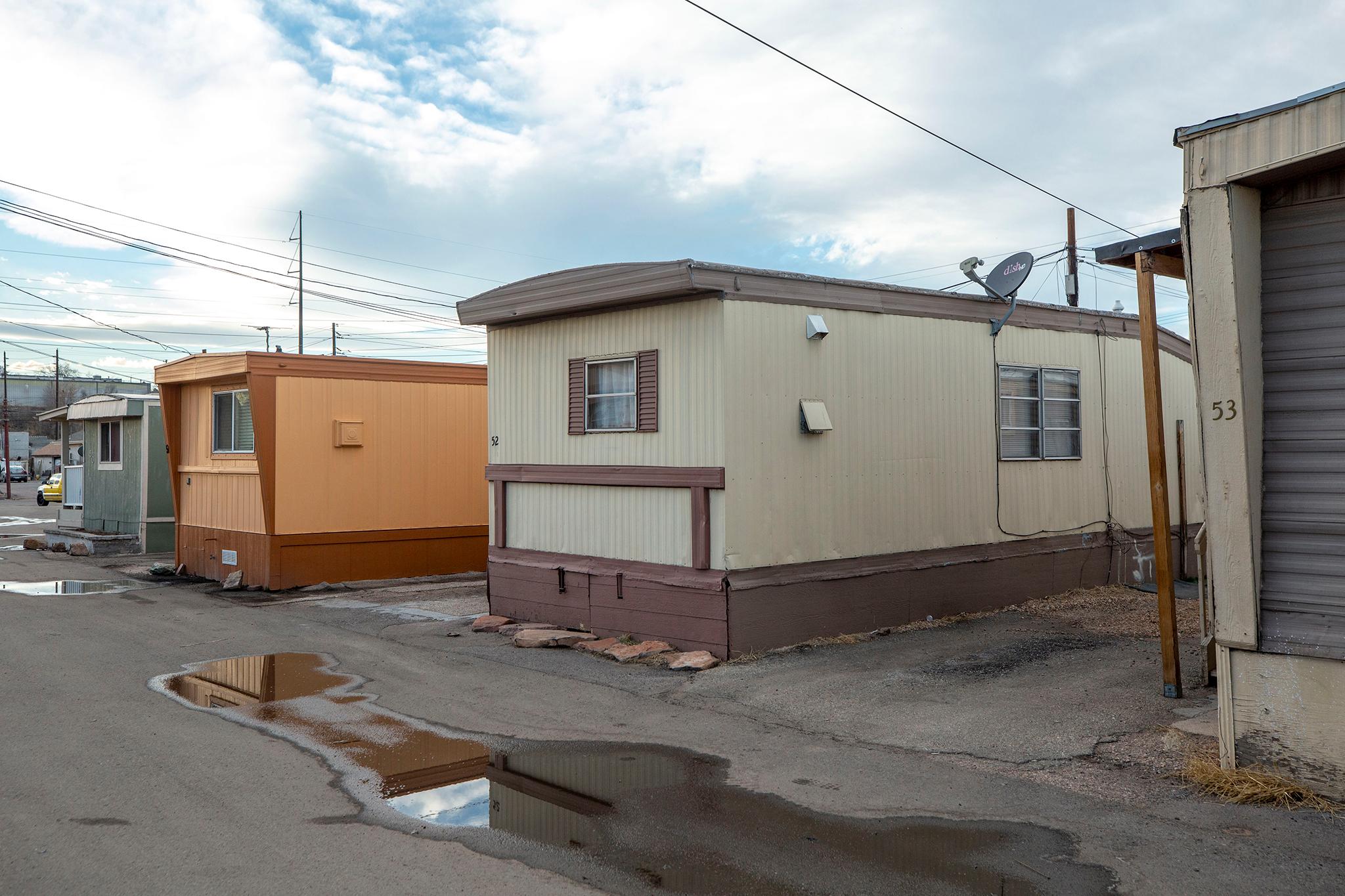
Those residents were given relocation vouchers but, as Torres mentioned, residents are low-income and these new units weren't necessarily affordable to them.
"Affordable housing, as we're currently doing it, is not meeting the need and it won't meet the need," said Councilmember Candi CdeBaca. "We need to have a discussion on how do we allow (residents) to modernize, improve and maintain an option for housing for those at our lowest income levels."
But how do you preserve something that shouldn't exist? The code hinders any expansion and renovation to existing parks and limits what happens to the land if it's sold.
In 2020, the General Assembly passed a bill that would require park owners to provide at least 90 days' notice to residents if they intend to sell or transfer the park to a new owner, and at least 12 months' notice if the owner intends to change the use of the land.
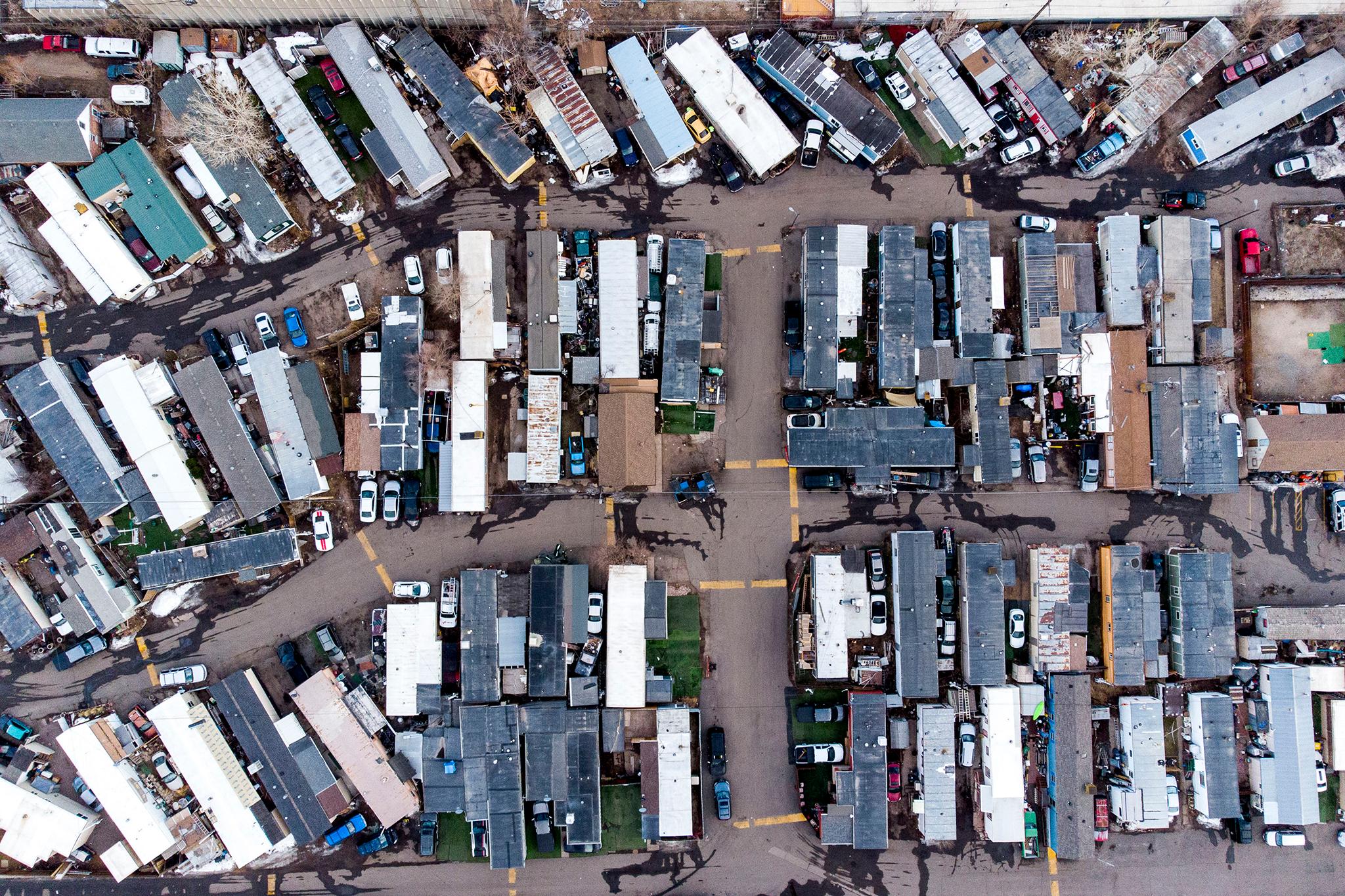
This gives residents the opportunity to form a co-op or homeowners association and make an offer to buy the land, though residents don't have the right of first refusal and landowners aren't required to accept their offer.
It also gives nonprofits or land trusts the opportunity to purchase the land, as well. However, a financial institution won't lend either party the money if they intend to keep the land as a mobile home park because of the zoning code.
"If a landowner wants to sell a park, a nonprofit or land trust provider can't [purchase the land] with the intention of keeping it a mobile home park because Denver doesn't currently allow mobile home parks," Torres said. "They wouldn't be able to get the base financing they need. If somebody wants to build an apartment complex on top of it, a bank would see no problem with that because that has the zoning support in Denver."
So what is the city doing to preserve Denver's five parks?
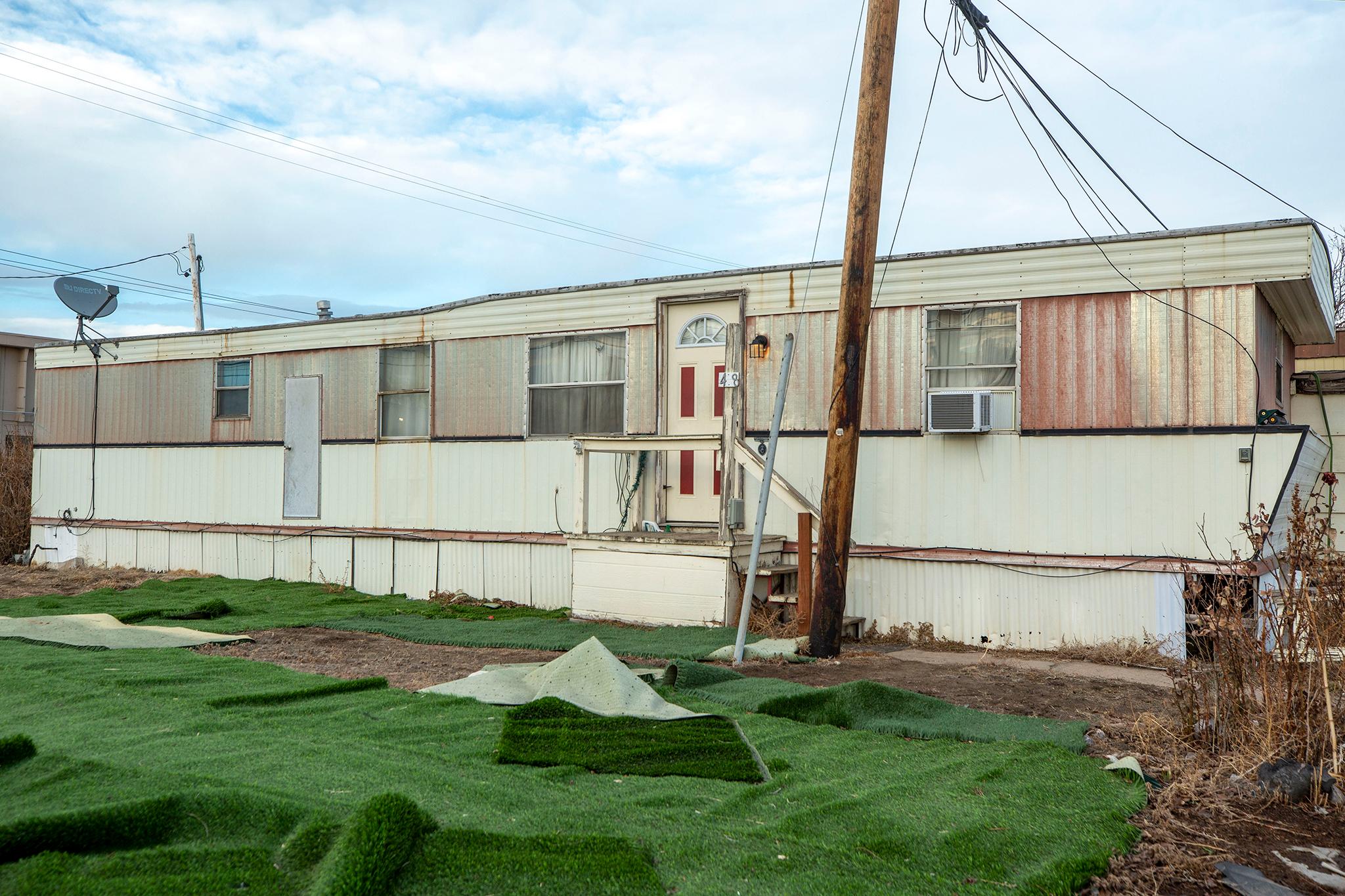
According to Community Planning and Development, which is working on several housing solution plans, mobile homes haven't been a topic of discussion among residents.
But CPD, along with CdeBaca, Torres and Councilmember Jolon Clark, have been working together to address mobile home park preservation. Their group is looking into short-term solutions, which focus on saving existing parks, and long-term solutions, such as possibly creating new code for the parks.
CdeBaca and Torres agree that time is of the essence.
"We're trying to make the solutions more realistic because time is not on our side for some of these things and we don't have five years to spend creating new district standards," Torres said. "It's an awful catch-22 about something that we know is housing hundreds of our residents and who would really struggle to find new housing if they don't have this option."
CdeBaca added, "We need to acknowledge that all housing types are housing. Our zoning code is only factoring in what we know and what we've seen in the past. Expanding a mobile home park can look very different in 2023 then it did in 1960. A mobile home can be a very different thing, especially given the crisis level conditions we have right now."

